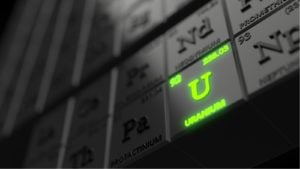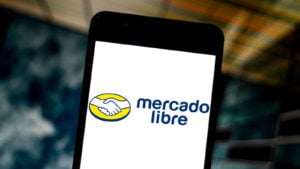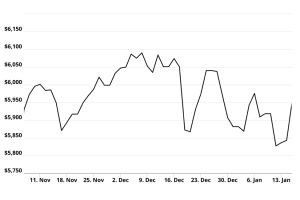
Despite some headwind macro signals, such as decreased GDP growth and downward jobs data revisions, expectations are still high for the stock market by the end of 2024, making it an ideal time to identify the best stocks to buy. At 41.6%, the allocation of U.S. households in the stock market is at an all-time high.
That is not surprising as inflation forced people’s hands in search of an inflation hedge.
As demonstrated by Nasdaq-100 (NDX) outperforming S&P 500 (SPX) at 19% vs. 15% year-to-date (YTD), respectively, investors are prioritizing growth stocks over blue chip stocks. The same trend is likely to continue as AI from Big Tech spills over into the energy sector demand.
Notwithstanding geopolitical black swans, much is expected of the Federal Reserve to further loosen financial conditions. Presently, fed fund futures are pricing three rate cuts by the end of the year. In turn, this makes household sentiment more bullish, having increased at the longer-term horizon.
Let’s now look at the top three stocks to buy for the coming boom, each catering to different investor preferences and market opportunities.
Uranium Energy (UEC)

After outperforming the wider market at 68% in a one-year period, Uranium Energy (NYSE:UEC) is down 16% in the last three months. Such a price correction is good news for investors who have missed the initial uranium boat.
As new energy alternatives are tried, it becomes increasingly clear that nuclear plants will power the future, courtesy of exceedingly cost-effective uranium properties.
Operating in Texas and Wyoming, UEC has several advantages to benefit from bullish uranium winds. First, the company uses an environmentally friendly In-Situ Recovery (ISR) process to extract uranium by circulating groundwater solution through ore rocks.
Second, UEC has been expanding its portfolio of uranium assets, making it a broader exposure. One such (majority) stake is in Uranium Royalty (NASDAQ:UROY), as a pure-play exposure to uranium prices, making it easier for investors to benefit from fluctuating uranium prices. Furthermore, UEC has a pipeline of resource-stage uranium projects, including in Canada’s Athabasca Basin, following the acquisition of UEX Corp.
In short, UEC is the largest and most diversified North America-centered uranium exposure for investors looking for stocks to buy. Presently priced at under $6, UEC stock is heading for an average price target of $10.25 per share.
MercadoLibre (MELI)

What happens when you plug in Amazon (NASDAQ:AMZN)and PayPal (NASDAQ:PYPL) models into Latin America? MercadoLibre (NASDAQ:MELI). The e-commerce and fintech company is well-diversified by generating revenue from marketplace fees on its platform, in addition to ads, product sales and classified ads from automotive and real estate listings.
As a double whammy, MercadoLibre gets commissions on payments volume through the Mercado Pago digital payments platform, which includes interest on loans via Mercado Credito. Combined with the Argentinian shift away from socialist policies, significant growth potential is there.
In Q1 2024 earnings, MercadoLibre gained 16% year-over-year (YoY) more unique active buyers and 37.6% more fintech monthly active users. The company sold 25% YoY more items, having increased net revenue by 36% to $4.3 billion, and grew its credit portfolio to $4.4 billion, a 46% YoY improvement.
At the present price of $1,678 per share, MELI stock is above its 52-week average of $1465.50. Tipranks’ aggregation points to $1,920 as the average MELI price target 12 months ahead, making MELI one of the top stocks to buy.
Costco (COST)

As retail chains take losses due to sky-high retail theft, Costco (NASDAQ:COST) is steadily chugging along in the background. Membership essentials model and benefits make for a strong deterrent and incentive mechanism.
Costco’s wholesale warehouse model at low prices is especially pertinent in the scenario of a hard landing. If a recession occurs, it will be one of the most resilient business models, interest rate cuts or not.
In June, Costco continued to show strong fundamentals, with net sales having increased by 6.9% for the first 39 weeks to $186.07 billion. Alongside retaining customer loyalty, Costco also ensures shareholder loyalty with a reauthorized stock buyback program worth $4 billion that expires in January 2027.
Year-to-date, COST stock is up 30%. Shareholders can also look forward to occasional special dividend payments, often 10x above the regular payouts. At the present rate, the COST dividend yield is 0.54% at an annual payout of $4.64 per share.
At the present price of $856.84, COST shares are closing in on an all-time high of $873.96 per share. Tipranks’ average COST price target is $860.58, with the upper ceiling at $975 per share.
On the date of publication, Shane Neagle did not hold (either directly or indirectly) any positions in the securities mentioned in this article. The opinions expressed in this article are those of the writer, subject to the InvestorPlace.com Publishing Guidelines.




